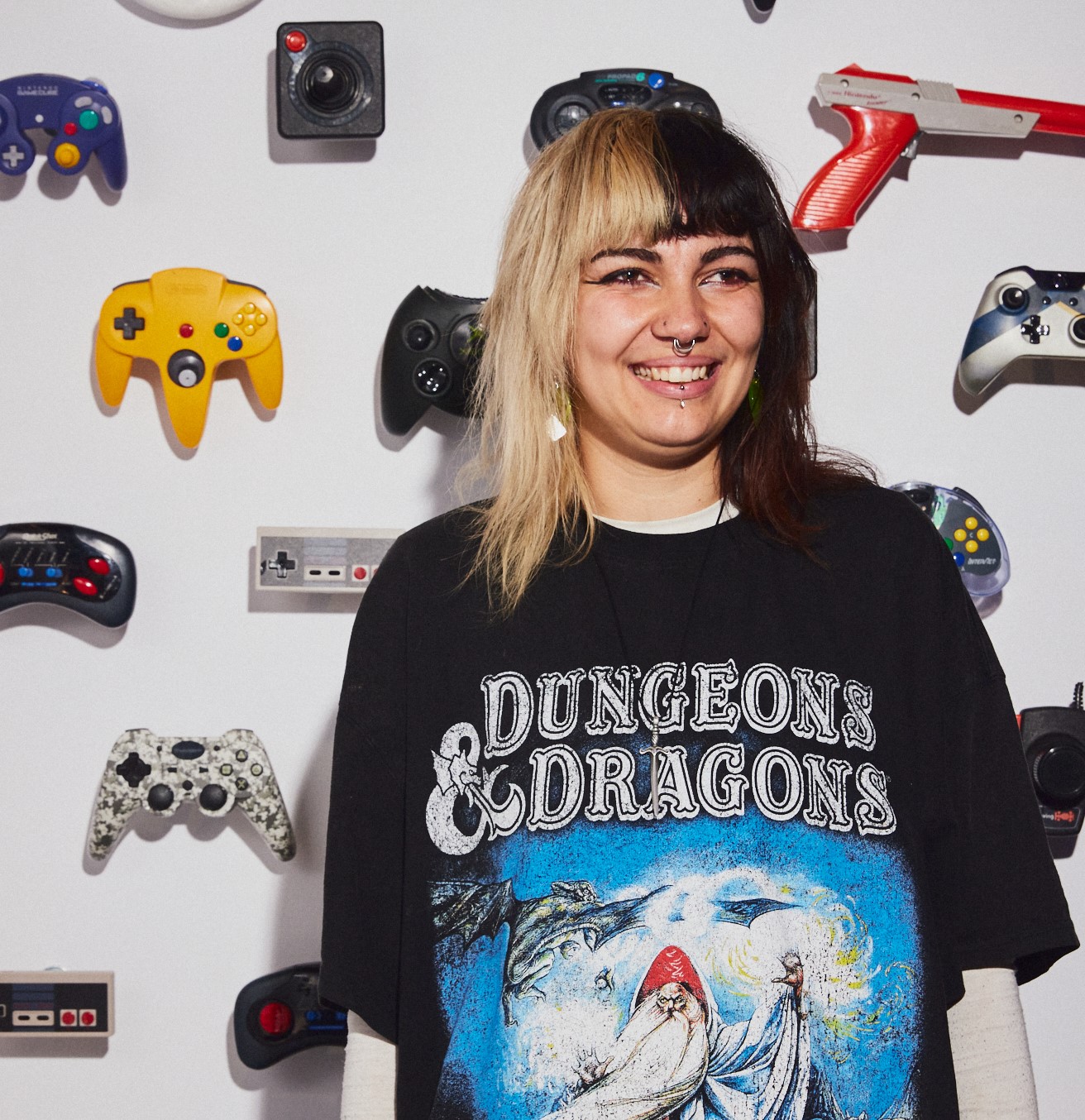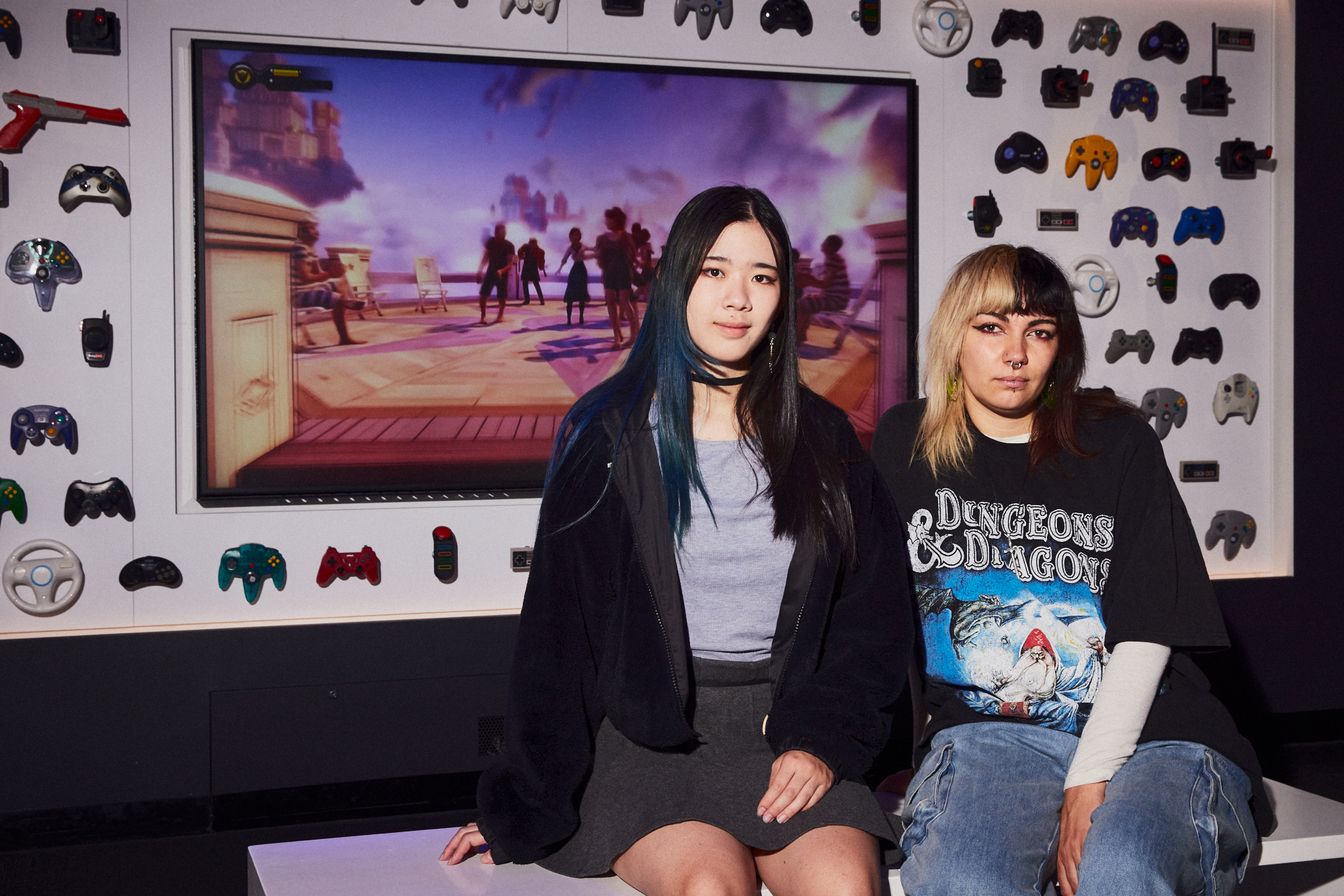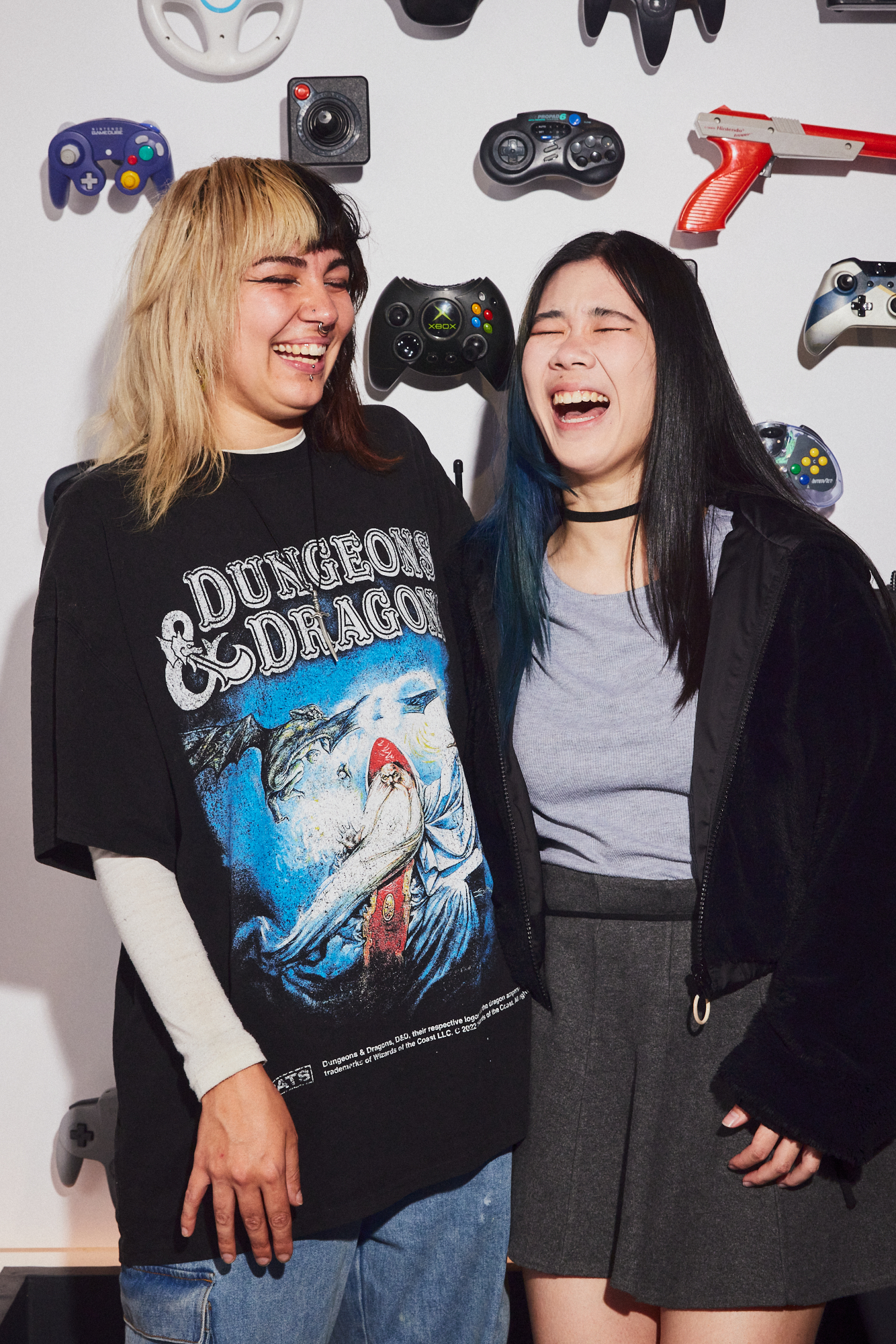News
Meet our new Games Intern: Phoebe Watson
Phoebe Watson grew up in Warrnambool by the sea. However, the moment she finished high school she was Melbourne-bound with a laser focus on doing what she loves: making video games.
The opportunity to bring a unique First Nations perspective to various games projects through VicScreen's Game Development Internship was an exciting prospect, Phoebe reflects. The ultimate goal, she says, is to pave a culturally safe path for other Indigenous creatives.
VicScreen spoke to Phoebe about her 18-month internship at VicScreen, Sledgehammer Games and Robot Circus.

Phoebe Watson at ACMI Games Lab - Presented by Big Ant Studios, photo by Sarah Chavdaroska
VicScreen: When did you know you wanted to work in games?
Phoebe: It wasn’t until I began looking at university courses that it even crossed my mind. I was interested in going to university for fine art, as it was something I was really enjoying at the end of high school. I saw that RMIT was offering the Bachelor of Game Design and I thought to myself “Hey, I really love playing games. What if I could be a part of making them?” and ever since then, I haven’t looked back!
What games are you playing and loving at the moment?
Phoebe: Since COVID lockdowns, I’ve been playing Apex Legends with friends which was new to me because I despised first person shooters. But I’ve also been feeling super nostalgic lately and pulled out my PS2 from deep within the cupboards to play Bratz: Rock Angelz and Bratz: Forever Diamondz.
VicScreen: Can you tell us what your games internship entails?
Phoebe: My internship is broken up into three parts where I will be spending time with two games studios and VicScreen. During my time at the studios, I’ll get to see and experience how a studio is run on a large and smaller scale, as well as getting some insight into how things work from a funding level across Victoria whilst at VicScreen.
 VicScreen Games Interns Memia Lin and Phoebe Watson at ACMI Games Lab - Presented by Big Ant Studios, photo by Sarah Chavdaroska
VicScreen Games Interns Memia Lin and Phoebe Watson at ACMI Games Lab - Presented by Big Ant Studios, photo by Sarah Chavdaroska
VicScreen: What trends (if any) are you noticing in Australian games?
Phoebe: We’re starting to see the end of the cozy game trend, but alongside that I’m also noticing an increased interest in engaging First Nations people and Indigenous cultures to strengthen and enrich the game worlds. I think a new style of rhythm games will begin to emerge next as I’ve been seeing a few solo and indie developers explore music and sound manipulation beyond tapping to the beat.
VicScreen: Can you tell us what motivated you to apply for this internship?
Phoebe: Although I have had some experience in the industry, there were a few key areas I wanted to explore and be a part of. After graduating I was lucky enough to secure work that brought my current skills and expertise to the table. I was yet to experience what it was like to just shadow and work under other talented people where I could learn freely, experiment and refine my work without the pressure of deadlines or meeting certain standards.
All my experience has been working in smaller teams where my role was responsible for a number of tasks, so I was really interested in understanding what it’s like to be a small cog in a much larger machine. Lastly, I am really passionate about seeing and creating a culturally safe space for First Nations people in games. I recognise that although there are film protocols for engaging First Nations people and culture, there isn’t one specifically for games. I really want to be a part of this change for my people and understanding how the industry works from all levels; being in the room with important people is where I begin.
VicScreen: Can you share one of your career highlights to date?
Phoebe: One of my career highlights so far is my first-ever talk at GCAP 2019. I spoke about the importance and sensitivities around including First Nations people and culture in the games space. I couldn’t believe that I was accepted to speak at an industry event surrounded by so many extremely skilled and talented people.
VicScreen: What career accomplishments do you hope to achieve in the next ten years?
Phoebe: In the next 10 years I would have loved to be a part of the conversations and seeing the creation of protocols for engaging First Nations people in the games space. I’d also love to have some of my own projects released to the public and create my own game studio.

Memia Lin and Phoebe Watson at ACMI Games Lab - Presented by Big Ant Studios, photo by Sarah Chavdaroska
VicScreen: What are some Australian games we should be playing right now?
Phoebe: A game that really took me by surprise in the best way possible was Video World made by Things for Human. The music is such a bop and the rhythm game style mechanics felt really unique. I haven’t played a game like this before and I’m so glad I did!
VicScreen: Which Australian games studios are ones to watch?
Phoebe: GUCK is definitely a studio to keep your eye on. They are working on creating a First Nations-led mobile game, focusing on creating a culturally safe environment for First Nations staff and creating processes that protect and support Indigenous people in being skilled creatives in their area of expertise, not hired for their cultural knowledge or connection.
VicScreen: What are the biggest misconceptions about making contemporary games and gaming more broadly?
Phoebe: That you need to be a skilled programmer or artist to make a good game. WRONG. There are so many programs and free tutorials out there that can help you learn any technical skills and people are always finding new innovative ways to create art or explore less realistic and detailed art styles.
VicScreen: What is the most challenging aspect of making a new game?
Phoebe: One of the most challenging aspects of making a new game is getting started and ensuring the idea is well-rounded and makes sense. I find it very easy to get carried away with the finer details and lose the bigger picture of the project.
VicScreen: What advice would you give other emerging games practitioners who might like to follow in your footsteps?
Phoebe: Do what you’re passionate about and what interests you. It’ll be more enjoyable and will keep you motivated. Also, don’t be afraid to ask for help. So many people have experienced the challenges of making a game and chances are, if you’re stuck, someone else has also experienced the struggle or a similar situation and can help you through. I’ve met so many people who are willing to share their knowledge, so learn as much as you can from as many people as you can. It will only make you more powerful.
Learn more about VicScreen’s Skills Development programs here.